It Takes a Village: Why child sponsorship includes adults too
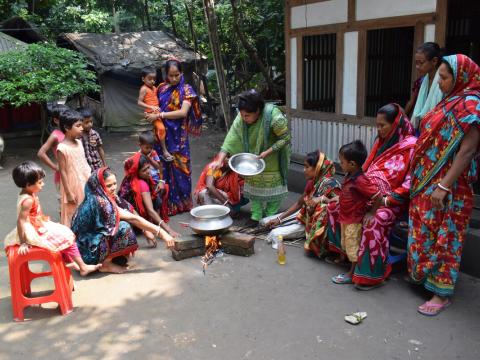
From the moment we are born, we are part of families, neighbourhoods, and communities – a web of networks and relationships that shape our lives for good or bad.
If it takes a village to raise a child, then it also takes a village to create lasting change for even a single child. That’s why adults are central to seeing children break free from poverty –The root causes that threaten children’s futures are complex and solving them means strengthening not just children’s wellbeing, but the wellbeing of their whole community.
What does that look like?
Child sponsorship empowers both a child and their community to break free from poverty, for good. That double impact means both can thrive, and the changes last. And so alongside our work directly with children, we work with their caregivers and the other adults who shape their world.
Income generation projects, savings groups, and agricultural and business training help families increase their income, so they can better provide for their children’s needs today and in the future. Training and support for professionals and health services strengthen them so children can access the care and support they will need as they grow. Education for parents, caregivers and schools on nutrition, hygiene or child rights/protection is vital to help kids eat more nutritious diets that impact them for life, as well as protect them from sickness and disease or violence and abuse. To empower a child for good, you must also empower the adults around them.
Meet some of the adults who are positively impacting their communities and find out what child sponsorship means in their lives, their children’s lives and the communities they live in.
Kenya
In rural Kenya, Halima’s community has been devastated by drought, hunger and malnutrition. But families like hers have received training and support to start small businesses to boost their income and family nutrition. Halima also joined a savings groups to access a loan to strengthen her business.
“This project has been very helpful to me and my children,” says Halima. “Now I own goats which provide milk that I sell. The goats are also my bank because if I have a financial emergency, I can sell one,” says Halima.
“I used to suffer during droughts. I am able to sustain myself because of the training I got from World Vision, especially on the preservation of dry grass that livestock can consume during the dry season. My goats also have water from a water pan built by World Vision. Therefore, I am not worried of losing them in times of drought.
“I want to save enough money to buy a cow so that I can get more milk.”
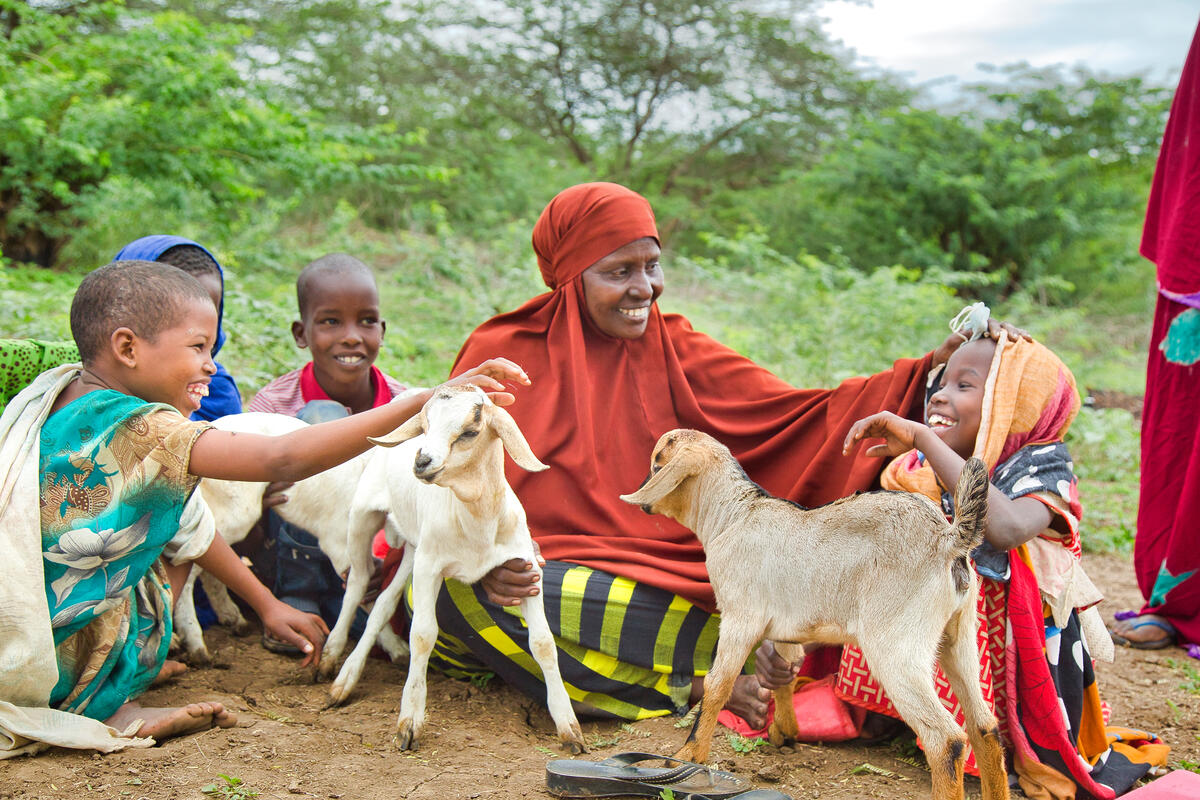
Philippines
Single mother of three Sonia is a member of the savings group called Beautiful Mommies which helped her start a small business selling laundry soap in a rural community in Sorsogon, Philippines.
"Providing for my children’s basic needs is difficult. That's why I'm trying to grab every opportunity I can," she says.
Child sponsorship helped the group of mums – and many others – start their own savings group. Investing USD$2 each, the group started out with just USD$50 capital to start making and selling their own fabric conditioner.
"We thought doing fabric conditioner is easy, that's why we chose it for our business. But when we did it ourselves, it's difficult. We've made several mistakes," Sonia says, laughing.
Fast forward to today, and Beautiful Mommies has perfected their product. With training and coaching from World Vision – and lots of trial and error! – they have built themselves a reliable income from selling their products in the community, making about USD$380 a year. It’s been game changing for these beautiful mummies!
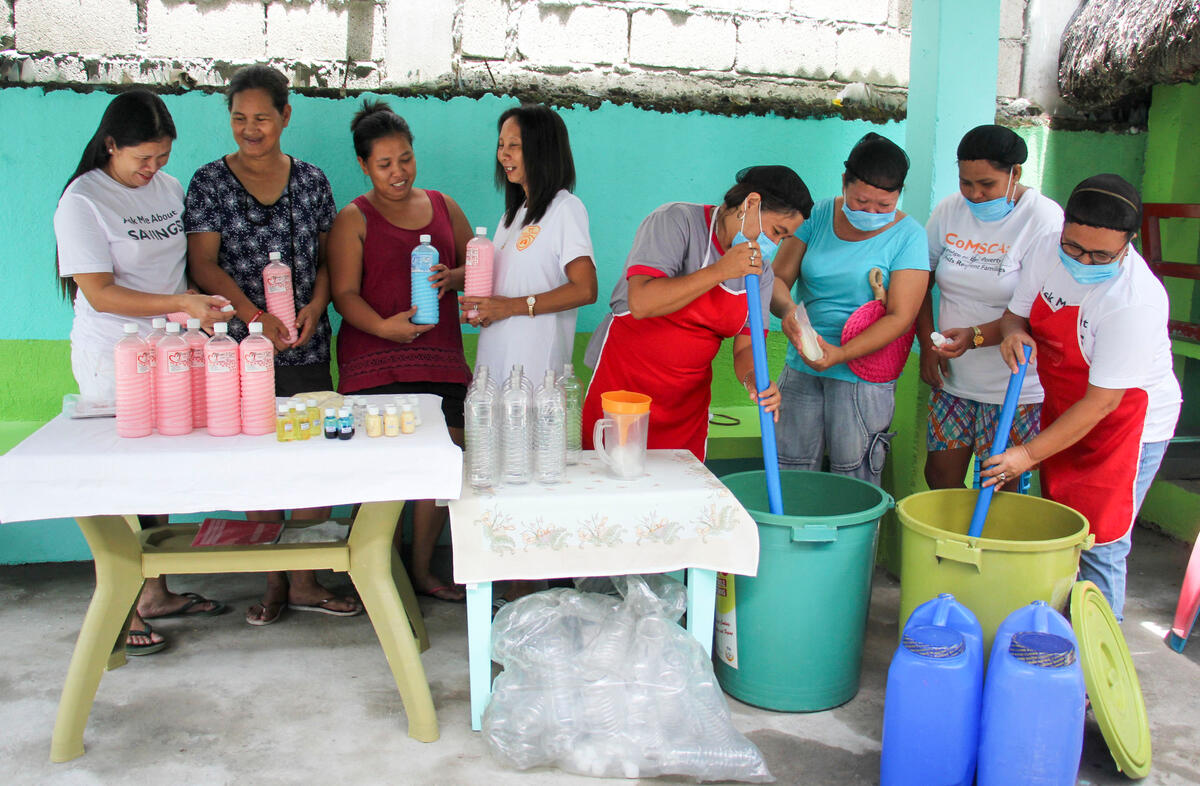
Uganda
In Busia, Uganda, fewer than 30 percent of women exclusively breastfeed their infants until the age of six months. Many women and families don’t understand the importance of birth spacing or the benefits of breastfeeding due to a lack of trained health workers in the region. But the child sponsorship programme is working with the government to increase awareness and training for mothers. Florence, a mother of six, didn’t know about the benefits of break milk when her first five children were born.
“I used to not breastfeed my children for so long because I didn’t know the importance of it,” says Florence. “Nobody ever told me the goodness of breastfeeding until now.”
Partnering with the Ministry of Health, World Vision launched the Baby-friendly Hospital Initiative (BFHI) in Uganda to encourage breastfeeding through education of healthcare workers in maternity and neonatal services. We are also educating mothers on how to breastfeed successfully and teaching male partners to support breastfeeding mothers. Community health groups, Village Health Teams and nutrition groups have also been formed and members trained to provide support to mothers.
Now, Florence is putting all that she’s learned into practice. “I want my child to be strong and healthy,” she says. “I want him protected against infections and illness and hospitalisation.”
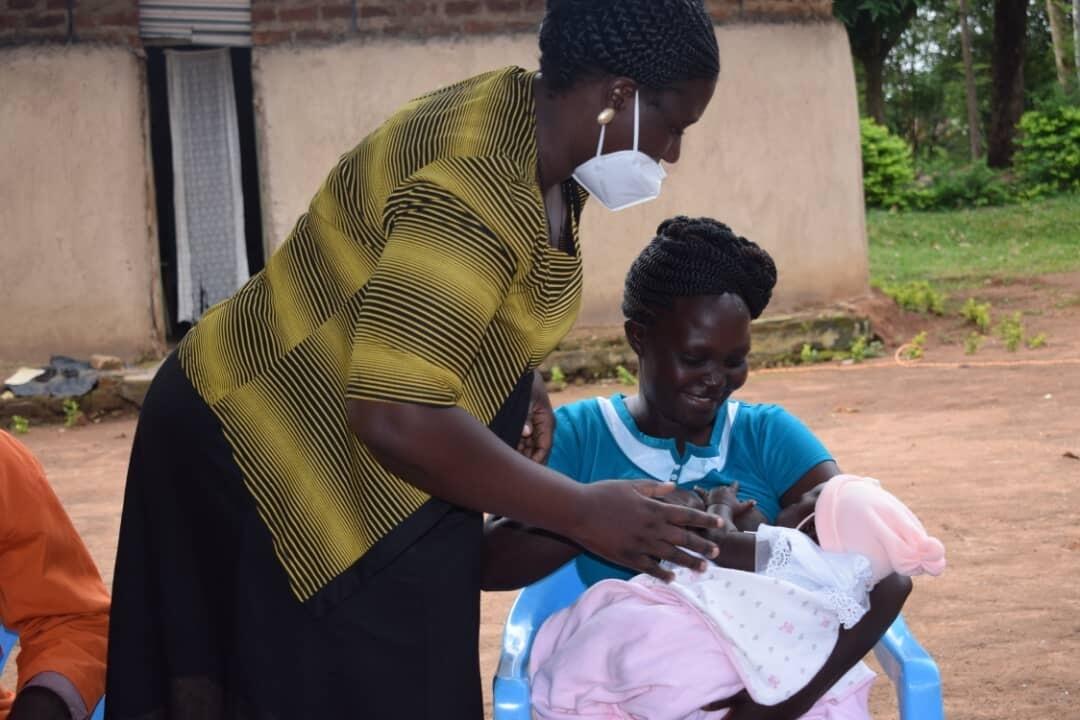
Bangladesh
You wouldn’t know it by looking at a smiling, healthy 11-year-old Riju playing with his friends today, but like many kids in his community in Kotalipara in rural Bangladesh, Riju was born severely underweight. Mothers in Kotalipara traditionally feed their families first before eating themselves, and in a community where many families don’t have enough food to go around, that means women often eat very little themselves.
“When I conceived Riju, I did not eat extra food,” Moharani continues, “Riju was born underweight, just 2,200 grams.”
Many children in Kotalipara are severely malnourished and the consequences are devastating – Riju’s 12-year-old neighbour Sunila has become blind as a result, and a raft of other malnutrition-related health problems are common in the community.
But because of child sponsors, things are changing in Kotalipara. Children like Riju have received nutritious food supplements to help them grow. But importantly, parents like Moharani received training on how to improve their children’s health with better food and nutrition, and on agricultural techniques to help them grow more healthy vegetables to eat and sell. A total of 120 local women were trained as nutrition trainers and are now sharing their knowledge about children’s nutrition needs, basic health care and growth monitoring, and recipes for balanced meals with other women in the area.
“Previously, mothers believed that nutritious food was expensive. World Vision has changed their thoughts; they now understand that high-priced [processed] foods are not always nutritious. Now, our area has a greater variety of nutritious vegetables and fruits,” says Lipi, one of the community trainers. “Thanks to our training, each village family grows vegetables in their own house now so they can have better nutrition.”
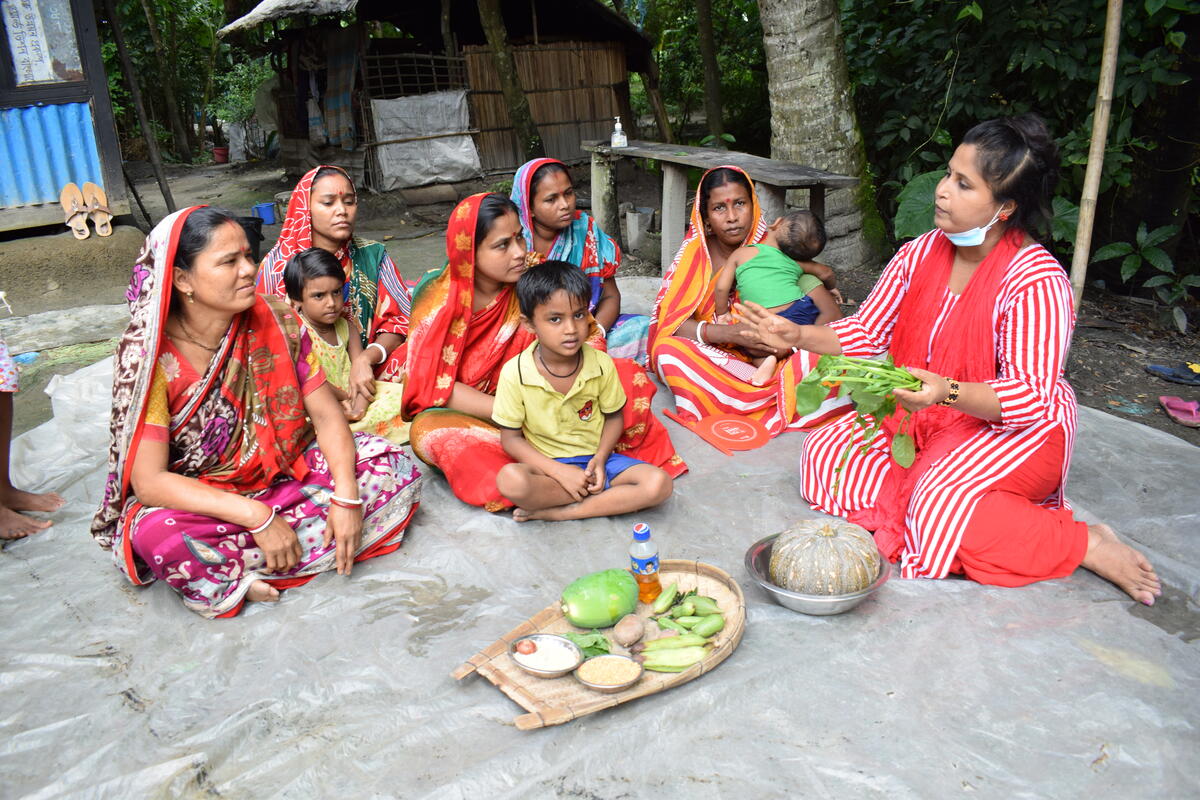
Kenya
When it comes to keeping kids safe, parents and caregivers play a vital role in protecting children. Sometimes, that means learning a new way of thinking about cultural practices and traditions, which are harmful for children, despite having been practiced for generations.
Paka used to ‘circumcise girls’ in her village, and she is a highly respected leader in community. Now she organises community forums to teach women in her village about the adverse effects of female genital mutilation (FGM). World Vision works with communities to change mindsets on harmful cultural practices like FGM and Paka attributes her change of heart to a local pastor in her village who was trained by World Vision.
“I used to cut girls because that was a cultural practice that the community valued. All along, I thought I was doing something good. But I later realised that I was harming them, and it brought me so much pain,” says Paka (pictured with her grandchildren).
“Now, I work so hard to change people’s mind in my community so they can save our children and girls from the practice. I also want to protect them from the anguish and pain that I feel when I remember the girls that I may have harmed unknowingly.”
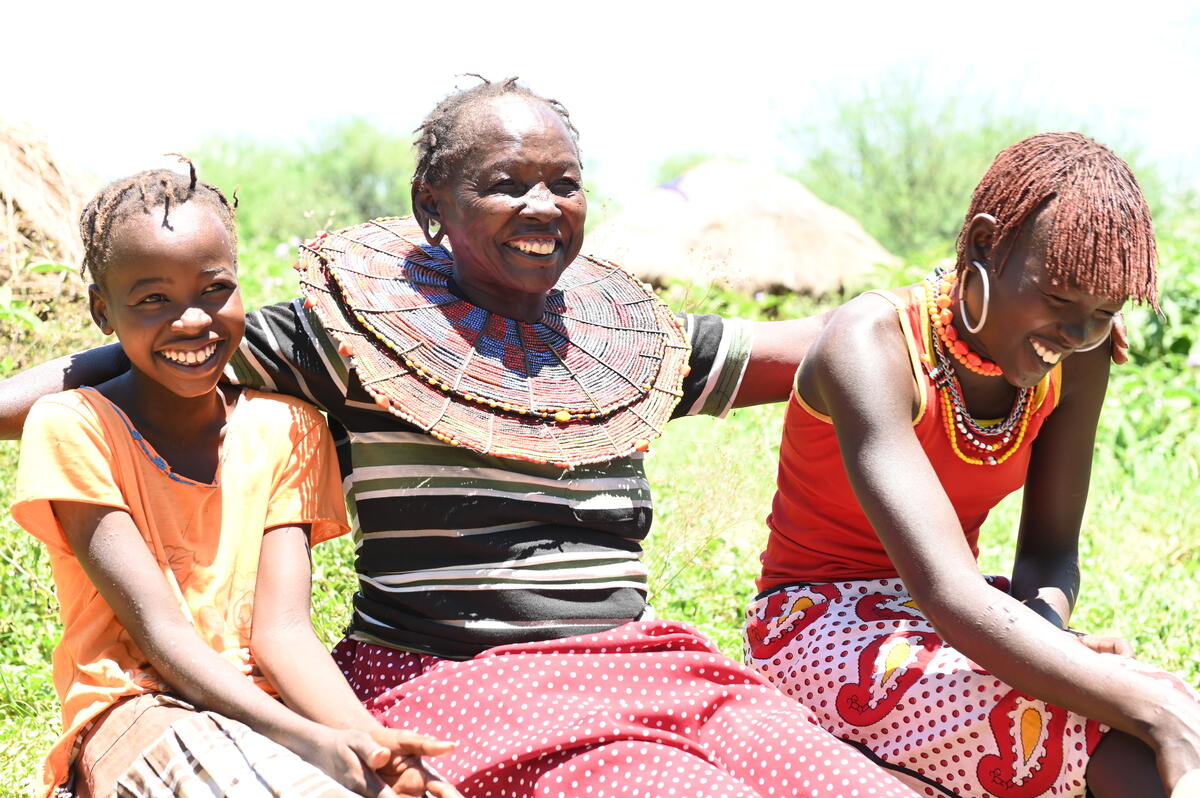
Zambia
Maves, a mother of six, had to walk long distances to collect contaminated water from a nearby community but everything changed when child sponsorship supplied clean, piped water to the community of Jembo.
“I used to spend almost the whole day at the water source waiting for the dirt to clear so that I could at least fetch a little clearer water,” says Maves. “Walking long distances and spending so much time drawing water is now a thing of the past because there is clean and safe water just at the doorstep of my home. I now grow vegetables and sell to community members which has also become a source of income for my family.”
Now the children can access clean, safe water for drinking which protects them from sickness and disease. Maves also is also using the water to grow vegetables, which is providing a reliable source of food and income for her family.
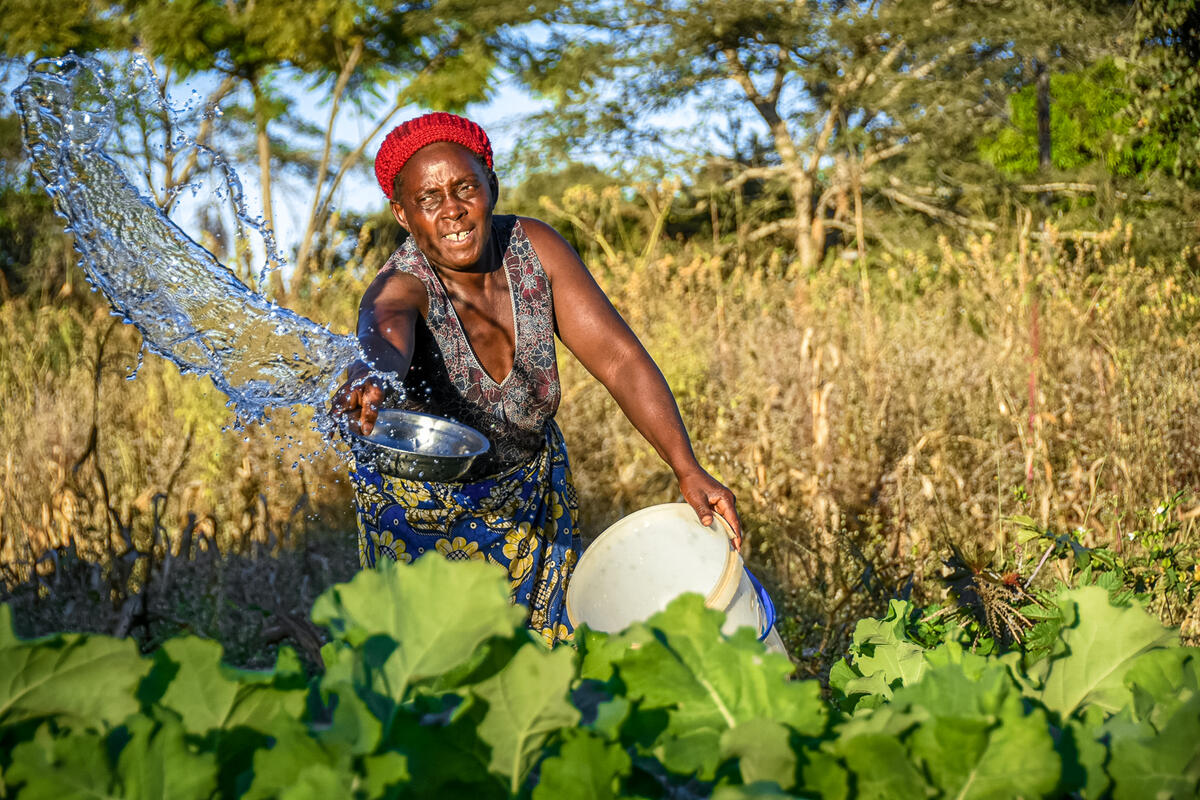
Honduras
Every day for five years, 13-year-old Reina and her sister Selene walked the long, muddy road to the well closest to their home in San Juan, Honduras. Sometime they made the trip 10 times a day.
"We had to load the water into buckets so that we could have water to drink, wash clothes, prepare food and bathe," remembers Reina. "The path to the well was slippery with too much mud, the water fell on us, and there were also times when men waited for us at the well - thank God nothing ever happened to us. Sometimes we got sick from drinking the water. The doctors told us not to drink that water anymore, but we had no choice."
Reina’s father Don José was desperate to find a way to bring water to their house for his daughters. He had knocked on every door he could think of to get support to bring water to their home without success – and then Reina was sponsored. Child sponsorship brought to life a water project in San Juan, and Don José could finally fulfil his promise to bring water home.
The community worked together to install pipes and pumps, and Don José was there every day, sometimes working from 5am to 9pm, to do his part.
“God heard our prayers and today we have water. We are happy because we no longer drink dirty water. The time we spent pulling water we now spent enjoying as a family,” says Reina.
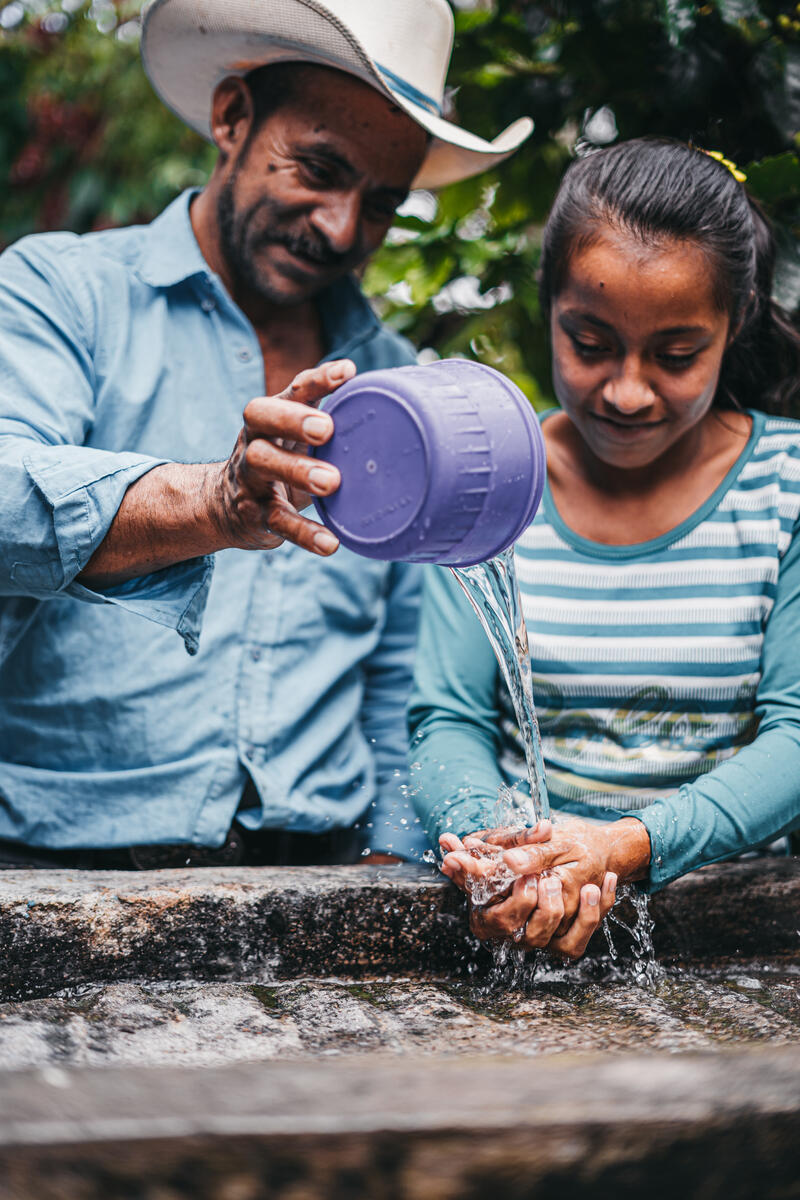
Adults are key to lasting change for children. Empowering a child to break free from poverty for good means empowering the adults and their entire community, too. By sponsoring a child, you help their whole community to transform their lives, today and for the future.
#WaterSecurity #FoodSecurity #CulturalChange #Incomegeneration #FinancialSecurity #CommunityDevelopment